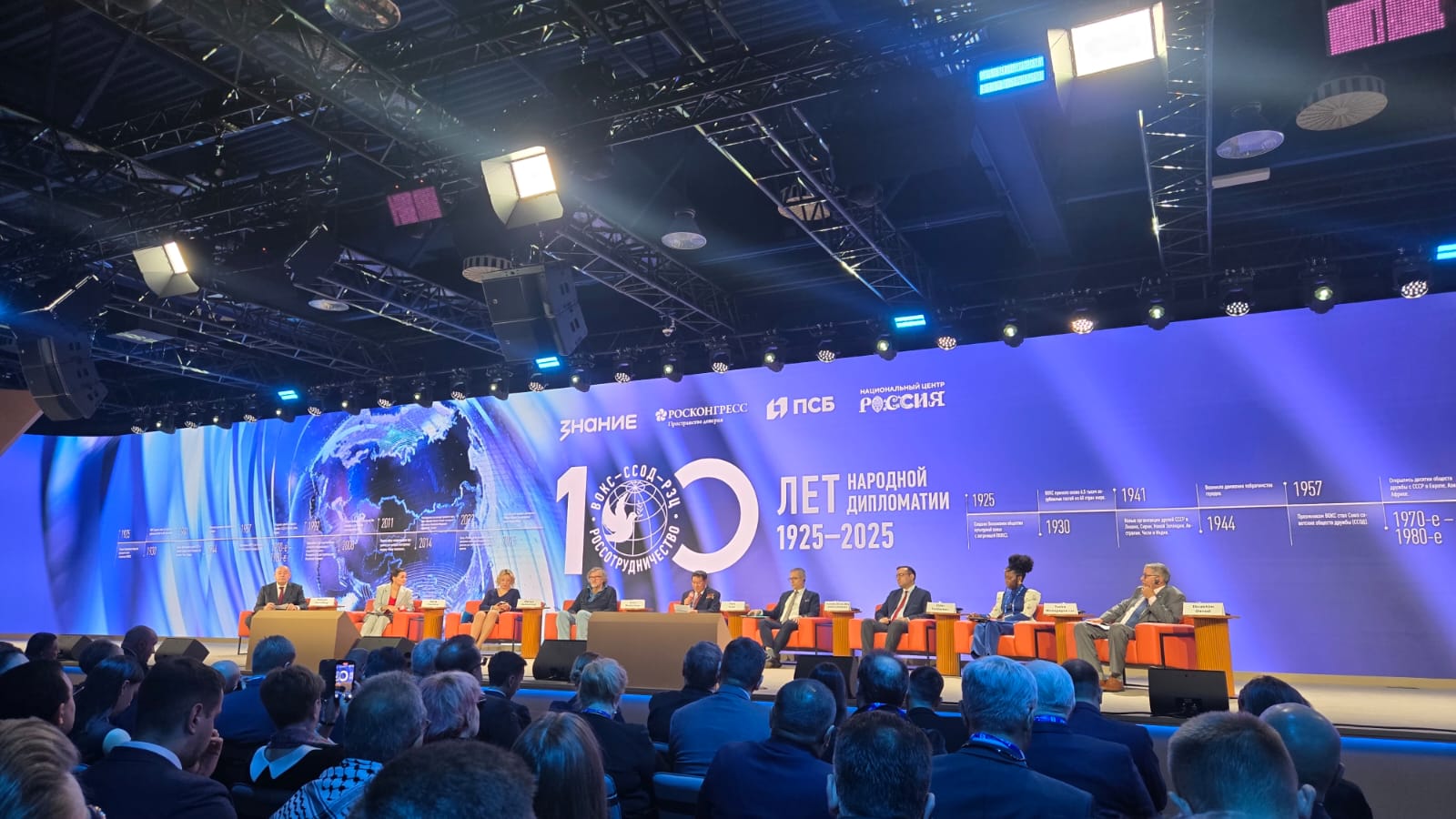Russia’s 100 Years of People-to-People Diplomacy — A Blueprint for Africa’s Global Engagement

At the heart of diplomacy lies one enduring truth — it begins with people. As Russia marks 100 years of people-to-people diplomacy, the International Cooperation Forum at the National Center “Russia” has rekindled that truth, reminding the world that international relations are sustained not only through treaties and summits but through shared values, dialogue, and trust among individuals.
A Century of Human Connection
The celebration commemorates the founding of the All-Union Society for Cultural Relations with Foreign Countries (VOKS) in 1925 — an institution that transformed the idea of diplomacy from state-to-state engagement into human-to-human connection. Over the decades, despite seismic shifts in global politics, this form of diplomacy has endured — shaping how Russia interacts with the world beyond political and ideological borders.
This year’s forum brought together global voices from over 100 countries — government leaders, thinkers, scientists, and artists — to discuss the continued importance of cultural, scientific, and humanitarian cooperation in a turbulent world. The forum’s key theses captured the global mood:
International turbulence is transforming traditional mechanisms of interstate interaction.
The politicization of humanitarian cooperation threatens unity.
The humanitarian dimension is increasingly central to foreign policy.
A new, multipolar, and just world is taking shape.
The global majority supports dialogue and peace.
Messages of Unity from Russia’s Leadership
In his written greeting, President Vladimir Putin, read by his Special Representative for International Cultural Cooperation Mikhail Shvydkoy, emphasized that the spirit of people’s diplomacy “has withstood the test of time” and remains a cornerstone of Russia’s global engagement.
Foreign Minister Sergey Lavrov, in his video message, reinforced this sentiment, reminding participants that “direct contact between people has always strengthened friendship and trust between nations representing different civilizations, religions, and cultures.”
.jpeg)
Other distinguished speakers included Konstantin Kosachev, Leonid Slutsky, Evgeny Primakov, and Maxim Dreval, who each stressed that diplomacy must evolve with the times — grounded in cooperation, not confrontation.
Global Participation and Cultural Synergy
The forum featured an exceptional lineup: Maria Zakharova (Russian MFA Spokesperson), Serbian filmmaker Emir Kusturica, Vietnamese cosmonaut Pham Tuân, Turkish cultural leader Ali Abdurrahman, Zimbabwean film producer Taririo Mnangagwa, and Egyptian journalist Ibrahim Dawood, among others.
Their discussions — ranging from “Business Diplomacy” and “Dialogue of Cultures” to “Women Shaping International Agendas” — illustrated that diplomacy today extends well beyond embassies. It thrives in classrooms, on film sets, in youth networks, and through shared humanitarian projects.
Africa’s Reflection: A Continental Diplomacy of the People
For Africa, Russia’s centenary offers profound lessons. The continent, with its dynamic youth population, creative industries, and Pan-African vision, stands ready to redefine diplomacy for the 21st century. Initiatives such as the African Union’s Agenda 2063, BRICS partnerships, and South-South cooperation reflect a growing commitment to global dialogue built on equality and respect.
But true influence, as Russia’s century-long journey shows, is cultivated through human capital. Cultural centers, educational exchanges, and community-led collaborations are the lifeblood of enduring international relations. Russia’s recent expansion of Partner Russian Houses in Nigeria and Equatorial Guinea demonstrates a practical model: promoting language, culture, and education to nurture sustainable friendship.
From Moscow to Africa: The Future of Global Humanity
At a session titled “People’s Diplomacy: Dialogue for Development,” Sergey Stepashin, Chairman of the Imperial Orthodox Palestine Society, warned of the world’s growing division and stressed that “people’s diplomacy must become a tool to prevent a new war.”
That message echoes deeply for Africa — a continent that has endured the legacies of colonization and continues to advocate for a multipolar, just world order. Building bridges through dialogue, culture, and shared innovation is not merely an aspiration but an urgent necessity.
As the global system shifts toward new centers of gravity, Africa and Russia share a responsibility: to strengthen global unity through understanding, not rivalry. The next century of diplomacy will belong to those who listen, engage, and connect — people to people, culture to culture, and future to future.


